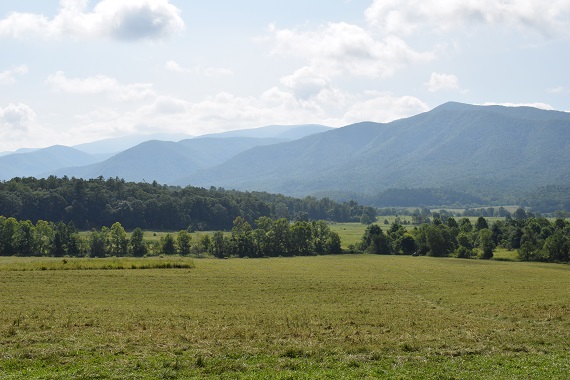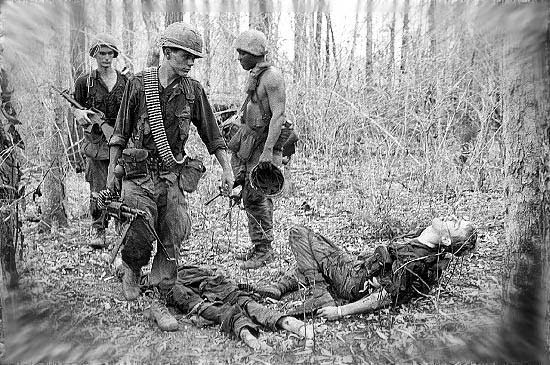Thursday, August 5, 2021
The Seminole Slavery Story

Despite repeated claims to the contrary by American elites, slavery is not a uniquely American, or even a uniquely white enterprise. Peoples of all nations and colors have engaged in the institution throughout history. One such example is easily found in the compelling history of the Seminole people.
Joseph Cotto, of Cotto/Gottfried podcast fame, has self-published an excellent study of the Seminole Indians and their desperate efforts to hold on to their tribal lands in Florida. The title that Cotto has bestowed on his highly readable, methodically researched monograph is Runaway Masters: A True Story of Slavery, Triumph, and Tragedy Beyond 1619 and 1776.
More @ Chronicles
Who Celebrates Che Guevara?
Even now, more than 50 years after his death, he inspires would-be revolutionaries and social justice warriors. Why is his appeal so enduring?
Incompetence + Arrogance = Woke: Politically correct ideology is masking and contributing to the widespread failure of our institutions.

I just took a flight on one of Parker’s American Airlines flights from central California to Dallas, Texas. But right before boarding the full flight, passengers were apprised that American did not have enough gas in the plane to make it to Dallas—and couldn’t find any in Fresno. So it was “stopping off” on the way in San Francisco to “fill up”—180 miles away and in the exact opposite direction of its eventual destination. I’ve only twice been on a plane without enough fuel to reach its destination and in need of a detour to find gas somewhere—once 15 years ago in Mexico and the other in 1974 in Egypt.
We know the nature of mass hysterias in history, and how they can overwhelm and paralyze what seem to be stable societies.
We know the roots and origins of the cult of wokeness.
And we know, too, how such insanity—from the Salem witch trials to Jacobinism to McCarthyism—can spread, despite alienating most of the population, through fear and the threat of personal ruin or worse. These are the dark sides of the tulip, hula-hoop, and pet-rock fads, the mass obsessions so suited to past affluent Western societies.
But does wokeism serve another purpose as well? Specifically, does it either hide preexisting incompetence or fuel it?
More @ Independent Institute
Newspapers Reject State-Run Media' but Deposited Millions in Bank

Back on his show, Carlson said $20 million has flowed from the Chinese Community Party to prominent daily newspapers across the country since 2016.
The New York Times has quietly deleted hundreds of stories from its own archives because they were paid propaganda from a Chinese Communist Party-owned newspaper, and now a prominent Fox News host and daily headache for the Left is on the case.
“Every one of [the stories] was a propaganda piece paid for by the Chinese Communist Party,” Tucker Carlson told his audience this week, “all designed to look like news articles.”
Carlson was referring to “advertorials,” which are newspaper ads designed to look like a newspaper story to catch the reader’s eye. In the name of journalism ethics, an advertorial typically states somewhere that an advertiser paid for it but it appears the country’s most famous newspaper failed to include that important footnote over several years.
More @ ONN
The Farewell Address of Nathan Bedford Forrest to Forrest's Cavalry Corps, May 9, 1865
![]()
More @ Charleston Athenaeum Press
Soldiers:
By an agreement made between Liet.-Gen. Taylor, commanding the Department of Alabama. Mississippi, and East Louisiana, and Major-Gen. Canby, commanding United States forces, the troops of this department have been surrendered.
I do not think it proper or necessary at this time to refer to causes which have reduced us to this extremity; nor is it now a matter of material consequence to us how such results were brought about. That we are BEATEN is a self-evident fact, and any further resistance on our part would justly be regarded as the very height of folly and rashness.
The armies of Generals LEE and JOHNSTON having surrendered. You are the last of all the troops of the Confederate States Army east of the Mississippi River to lay down your arms.
The Cause for which you have so long and so manfully struggled, and for which you have braved dangers, endured privations, and sufferings, and made so many sacrifices, is today hopeless. The government which we sought to establish and perpetuate, is at an end. Reason dictates and humanity demands that no more blood be shed. Fully realizing and feeling that such is the case, it is your duty and mine to lay down our arms -- submit to the “powers that be” -- and to aid in restoring peace and establishing law and order throughout the land.
The terms upon which you were surrendered are favorable, and should be satisfactory and acceptable to all. They manifest a spirit of magnanimity and liberality, on the part of the Federal authorities, which should be met, on our part, by a faithful compliance with all the stipulations and conditions therein expressed. As your Commander, I sincerely hope that every officer and soldier of my command will cheerfully obey the orders given, and carry out in good faith all the terms of the cartel.
Those who neglect the terms and refuse to be paroled, may assuredly expect, when arrested, to be sent North and imprisoned. Let those who are absent from their commands, from whatever cause, report at once to this place, or to Jackson, Miss.; or, if too remote from either, to the nearest United States post or garrison, for parole.
Civil war, such as you have just passed through naturally engenders feelings of animosity, hatred, and revenge. It is our duty to divest ourselves of all such feelings; and as far as it is in our power to do so, to cultivate friendly feelings towards those with whom we have so long contended, and heretofore so widely, but honestly, differed. Neighborhood feuds, personal animosities, and private differences should be blotted out; and, when you return home, a manly, straightforward course of conduct will secure the respect of your enemies. Whatever your responsibilities may be to Government, to society, or to individuals meet them like men.
The attempt made to establish a separate and independent Confederation has failed; but the consciousness of having done your duty faithfully, and to the end, will, in some measure, repay for the hardships you have undergone.
In bidding you farewell, rest assured that you carry with you my best wishes for your future welfare and happiness. Without, in any way, referring to the merits of the Cause in which we have been engaged, your courage and determination, as exhibited on many hard-fought fields, has elicited the respect and admiration of friend and foe. And I now cheerfully and gratefully acknowledge my indebtedness to the officers and men of my command whose zeal, fidelity and unflinching bravery have been the great source of my past success in arms.
I have never, on the field of battle, sent you where I was unwilling to go myself; nor would I now advise you to a course which I felt myself unwilling to pursue. You have been good soldiers, you can be good citizens. Obey the laws, preserve your honor, and the Government to which you have surrendered can afford to be, and will be, magnanimous.
N.B. Forrest, Lieut.-General
Headquarters, Forrest's Cavalry Corps
Gainesville, Alabama
May 9, 1865
General Orders No. 221
The Old South and the New

This essay was originally published in the February 1936 issue of The American Review.
There is one important element, however, in this Southern scene which gives me some cheer: the people. If one does not travel too fast through this desolate country, he will form some acquaintance with its inhabitants; and if he has lived elsewhere he will be struck by the courtesy and good manners and the genuine kindliness of even the most humble people as well as their high level of integrity.
Years ago, during the World War, I traveled from Chicago by way of Cincinnati to Montgomery, Alabama, in the company of a group of young ladies from the North who were visiting their men-folk encamped at Camp Sheridan. None of them had been South before, and they were looking forward to the journey through the “Sunny South” with considerable excitement. They had, despite everything which had ever been said to the contrary in the North, a romantic conception of the South. They expected to enter a pleasant land of white-columned mansions, green pastures, expansive cotton and tobacco fields where negroes sang spirituals all the day through. But, with the exception of the blue-grass basins of middle Kentucky and middle Tennessee, and an occasional fertile valley here and there where beautiful old homes yet stood amidst their fertile acres, no such picture greeted these romantic young ladies. After crossing the Ohio River, what they saw —with the exceptions of these lovely spots in middle Kentucky and Tennessee — were gutted hill-sides; scrub oak and pine; bramble and blackberry thickets; bottom lands once fertile now senile and exhausted, with spindling tobacco, corn, or cotton stalks to bear witness to the senility; unpainted houses which were hardly more than shacks or here and there the crumbling ruins of old mansions covered with briars, the homes of snakes and lizards.
More @ The Abbeville Institute
Repost 2011: "Major Curry, This Came In Today From Saigon"
| "Major Curry, This Came In Today From Saigon" | |
An American soldier casts a sideward glance at a fallen comrade, a look that reveals more than words can say. Tay Ninh, South Vietnam, June 4th, 1967. The soldiers push on after heavy contact with a North Vietnamese force, six miles east of the Cambodian border in War Zone C. The men are members of C Company, Second Battalion, Sixteenth Infantry, Second Brigade, First Infantry Division.
(At USARV Headquarters, anyone who screwed up/didn't do their job was automatically assigned to the 108th Artillery Group at Dong Ha, because that was as far north as you could be sent. Dong Ha was about two hours north of Phu Bai. BT)
*********************
“Welcome to Phu-Bai,” he grunted. “The front lines are about a hundred yards in that direction. Dig your foxholes from that clump of trees around to the dry stream bed over there.” Squinting into the sun, he gestured with a big knuckled forefinger. “My rules of engagement are simple; anything that moves outside the barbed wire after dark gets shot. Any questions?”
More @ Human Events
Repost 2010: When To Shoot The Colonels
Via David

"At ease, Marines, and be seated" orders the gruff Gunnery Sergeant.
"Now turn to Chapter 8 in your Military Constitutional Law text," he
continues. "Today we discuss the appropriate conditions for shooting a
colonel who is issuing an order which would violate the Constitutional
rights of American citizens. Our first scenario involves gun
seizures..."
Absurd, isn't it, to think that this sort of education is conducted
among our armed forces? Yet, millions of citizens indulge this unspoken
fantasy each time they imagine that the military exists to preserve our
freedoms.
More @ Starving the Monkeys

